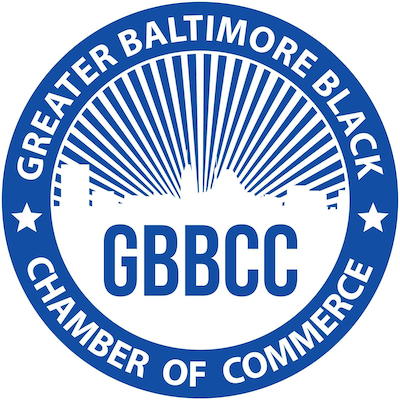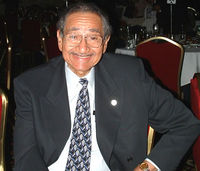The Passing of a Great ManRaymond V. Haysbert Sr.,
Founding Chairman
It was so sad to hear that our Chairman, Mr. Ray Haysbert passed away. Even though we knew he had been very ill, it is still heartrending to know that he will not physically be with us any longer - the “Giant” that he was and always will be in our hearts and minds. Not only will we miss the knowledge Mr. Haysbert so readily shared with us, the warmth and comfort ever present, the reverence to God so evident, and that he always seemed to be larger than life.
The following is a photo montage and commentary of some of Mr. Haysbert's many accomplishments.
Raymond V. Haysbert Sr., an elder statesman of Maryland's African-American business community, died at Union Memorial hospital Monday, May 24th, 2010. He was 90 years young.
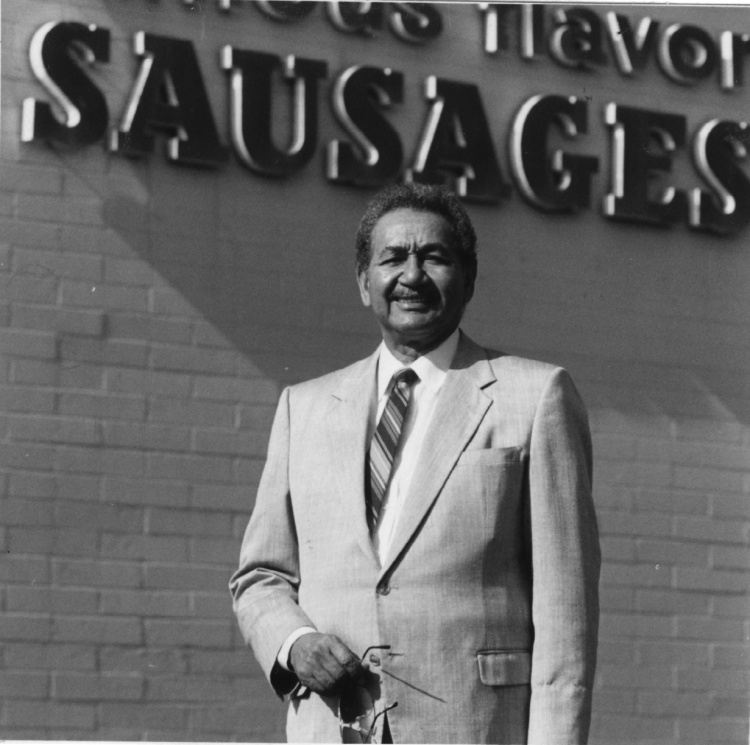 Mr. Haysbert, most notably was the chief executive officer of the Parks Sausage Co., one of the largest black-owned, publically traded businesses on the stock exchange in the country. He was a founder and longtime chairman of the Greater Baltimore Black Chamber of Commerce, Chairman of the Urban League in Baltimore and the recipient of hundreds of awards, citations and acknowledgements for his contributions to Marylanders.Raymond V. Haysbert Sr. in front of Parks Sausage
Mr. Haysbert, most notably was the chief executive officer of the Parks Sausage Co., one of the largest black-owned, publically traded businesses on the stock exchange in the country. He was a founder and longtime chairman of the Greater Baltimore Black Chamber of Commerce, Chairman of the Urban League in Baltimore and the recipient of hundreds of awards, citations and acknowledgements for his contributions to Marylanders.Raymond V. Haysbert Sr. in front of Parks Sausage
Mr. Haysbert moved to Baltimore in the 1950s, and was recruited by Henry Parks. He was instrumental in turning the Park Sausage company, known for its popular "More Parks Sausages Mom,.....Please" slogan, into a great success that earned record financial profits. Park Sausages became the first minority-owned company to go public. Following the success of Parks Sausages Mr. Haysbert founded his family catering business, Forum Caterers.
Former Baltimore congressman and head of the national NAACP
Kweisi Mfume, said "Ray Haysbert was synonymous with the struggle for entrepreneurship among African Americans at a time when it wasn't very popular.
Mr. Haysbert helped integrate Baltimore politics by helping to get an African American elected to the council in 1963. He was also campaign treasurer for Sen. Harry Cole, the first black senator in Annapolis, and served as chairman for Clarence "Du" Burns in his unsuccessful run for mayor in 1987.
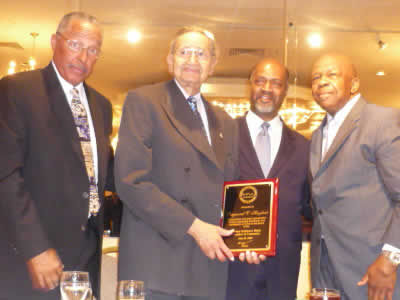 Up until his death, Mr. Haysbert remained the chairman of the Greater Baltimore Urban League, and the Greater Baltimore Black Chamber of Commerce.
Up until his death, Mr. Haysbert remained the chairman of the Greater Baltimore Urban League, and the Greater Baltimore Black Chamber of Commerce.
"He always figured he didn't have enough time to get all he wanted accomplished," said son Reginald, 62. "He was terrifically motivated to make the world a better place. … He couldn't say no to people when they needed help." He also says his father remained active with charities and business interests, carried around a laptop and kept up with current news using the Internet.
Baltimore City Mayor, Stephanie C. Rawlings-Blake called Haysbert's death the "end of an era."
"Over the years, Mr. Haysbert used his success and status in the community to help hundreds of minority-owned businesses start and thrive in Baltimore. He remained active in his family business as well as never ceasing to give advice to many even during his time in hospice and the hospital. He lived and breathed service, especially to the entrepenuers that he encouraged.
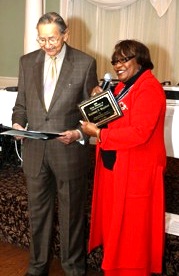 City Council President Bernard C. "Jack" Young called Haysbert a "courageous American hero" who "persevered against discrimination and poverty to become a pioneering businessman and philanthropic force." He remained rooted in the understanding that he had a duty to his fellow citizens," Young said in a statement.
City Council President Bernard C. "Jack" Young called Haysbert a "courageous American hero" who "persevered against discrimination and poverty to become a pioneering businessman and philanthropic force." He remained rooted in the understanding that he had a duty to his fellow citizens," Young said in a statement.
"Born in Cincinnati, Ohio, he grew up in poverty during -The Great Depression- and worked for a coal company before joining the Army Air Corps, where he served as a fighter pilot in Africa and Italy with the Tuskeegee Airmen.
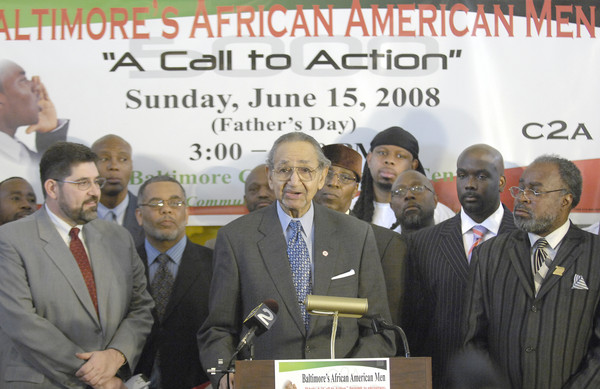 In 2003, Coppin State University unveiled the Raymond V. Haysbert Research Center, a hub for research on African Americans in the Baltimore region.
In 2003, Coppin State University unveiled the Raymond V. Haysbert Research Center, a hub for research on African Americans in the Baltimore region.
The unveiling of the Center will open doors for applied and qualitative research to scholars, business, and political leaders in the Baltimore area. The Research Center, which will be located in the Grace Jacobs Building on the Coppin campus, will explore applied research in the areas of healthcare, technology, intervention methods for youth, and criminal justice with the intent of modeling actionable best practices for cities throughout the nation.
Mr. Haysbert is survived by his wife, Carol, and four children.
